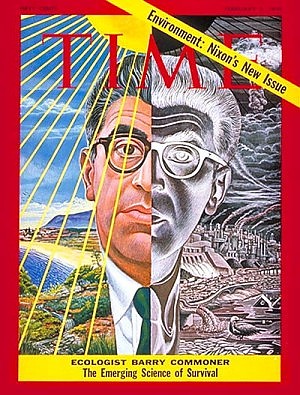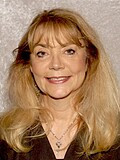Ba rry Commoner, a cell biologist who became an early leader of the environmental movement and an influential proponent of the 1963 Nuclear Test Ban Treaty, died in September at the age of 95. His work was virtually always informed by basic ecological principles discussed in his well-known book, The Closing Circle. Early in his career, Commoner recognized the ecological consequences of America’s post-war technology boom and was among the first to stimulate a national debate over the public’s right to confront the risks and make decisions. He believed that decisions based on scientific information were ultimately political, requiring value judgments. He opposed leaving decisions solely to so-called experts and emphasized the importance of getting scientific information to the public in understandable ways.
rry Commoner, a cell biologist who became an early leader of the environmental movement and an influential proponent of the 1963 Nuclear Test Ban Treaty, died in September at the age of 95. His work was virtually always informed by basic ecological principles discussed in his well-known book, The Closing Circle. Early in his career, Commoner recognized the ecological consequences of America’s post-war technology boom and was among the first to stimulate a national debate over the public’s right to confront the risks and make decisions. He believed that decisions based on scientific information were ultimately political, requiring value judgments. He opposed leaving decisions solely to so-called experts and emphasized the importance of getting scientific information to the public in understandable ways.
In remembrance of Dr. Commoner's contributions and his influence on the careers of so many who came to know him through his research, writing and teaching, CHE hosted a call with reflections from three of his former students and colleagues.
Featured Speakers
 Dr. David Kriebel co-directs the Lowell Center for Sustainable Production and serves as a Professor and Chair of the Department of Work Environment at the University of Massachusetts Lowell. Since 1988, he has been on the faculty at the University of Massachusetts Lowell. Dr. Kriebel’s research focuses on the epidemiology of occupational injuries, cancer, and non-malignant respiratory disease. He has published on various aspects of epidemiologic methods, particularly on the use of quantitative exposure data in epidemiology. He has been active in developing dosimetric models to better understand the effects of aerosols on the lungs. Dr. Kriebel has served on several National Academy of Sciences committees on environmental health and has written and lectured on the role of epidemiologic evidence in science policy decision making.
Dr. David Kriebel co-directs the Lowell Center for Sustainable Production and serves as a Professor and Chair of the Department of Work Environment at the University of Massachusetts Lowell. Since 1988, he has been on the faculty at the University of Massachusetts Lowell. Dr. Kriebel’s research focuses on the epidemiology of occupational injuries, cancer, and non-malignant respiratory disease. He has published on various aspects of epidemiologic methods, particularly on the use of quantitative exposure data in epidemiology. He has been active in developing dosimetric models to better understand the effects of aerosols on the lungs. Dr. Kriebel has served on several National Academy of Sciences committees on environmental health and has written and lectured on the role of epidemiologic evidence in science policy decision making.
 Michele Prichard joined Liberty’s Hill’s Community Funding Board in 1982, became Director in 1989, and transitioned to special projects in 1998. Michele holds a Master of Arts in urban planning from UCLA and has served as a senior fellow to the UCLA School of Public Affairs since 2007. She serves on the boards of GREEN LA Coalition and the Venice Community Housing Corporation.
Michele Prichard joined Liberty’s Hill’s Community Funding Board in 1982, became Director in 1989, and transitioned to special projects in 1998. Michele holds a Master of Arts in urban planning from UCLA and has served as a senior fellow to the UCLA School of Public Affairs since 2007. She serves on the boards of GREEN LA Coalition and the Venice Community Housing Corporation.
 Vernice Miller-Travis is the principal of the environmental consulting group Miller-Travis & Associates, and a Senior Associate at Skeo Solutions. Through both Miller-Travis & Associates and Skeo Solutions, she targets her efforts to working with communities that have undergone economic disinvestment and environmental degradation to facilitate and implement community revitalization and sustainable redevelopment initiatives and projects. Vernice has been a key convener of an effort to bring the environmental justice constituency into dialogue with the Obama/Biden administration focusing on US EPA, US DOJ, and the White House Council on Environmental Quality. She served as a principal co-author of the report Now is the Time: Environmental Injustice in the U.S. and recommendations for eliminating disparities published by the Lawyer’s Committee for Civil Rights Under Law in June, 2010. She was recently reappointed to the U.S. EPA’s National Environmental Justice Advisory Council where she serves on the Work Group on Integrating Environmental Justice into Permitting.
Vernice Miller-Travis is the principal of the environmental consulting group Miller-Travis & Associates, and a Senior Associate at Skeo Solutions. Through both Miller-Travis & Associates and Skeo Solutions, she targets her efforts to working with communities that have undergone economic disinvestment and environmental degradation to facilitate and implement community revitalization and sustainable redevelopment initiatives and projects. Vernice has been a key convener of an effort to bring the environmental justice constituency into dialogue with the Obama/Biden administration focusing on US EPA, US DOJ, and the White House Council on Environmental Quality. She served as a principal co-author of the report Now is the Time: Environmental Injustice in the U.S. and recommendations for eliminating disparities published by the Lawyer’s Committee for Civil Rights Under Law in June, 2010. She was recently reappointed to the U.S. EPA’s National Environmental Justice Advisory Council where she serves on the Work Group on Integrating Environmental Justice into Permitting.
This call was moderated by Ted Schettler, MD, MPH, CHE's science director.
